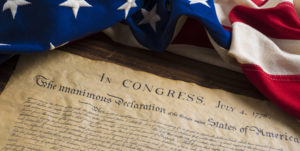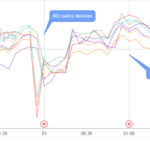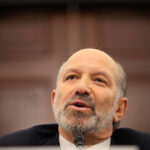Nationalism is the support of one’s own nation’s interests, often at the expense of those of other nations. Protectionism Protectionist tariffs are considered necessary to promote and protect national interests, so nationalism often coexists with them. I am not a nationalist (in fact, I would call a nationalist a Socialism and fascismHere I would like to question the relationship between nationalism and protectionism. If you are a nationalist, be against Protectionism is intended to weaken the political system and national unity.
Protectionism, through tariffs and subsidies, aims to support various industries that governments have designated as essential to the national interest. These industries can be military industries (ships, weapons manufacturing, key inputs and natural resources, etc.), technology (superconductors, AI research, etc.), or goods necessary for national life (food, arts, entertainment, etc.). Of course, there is the common, trivial argument that resources are scarce and supporting these industries necessarily comes at the expense of others. This favoritism may sow discord and division between nations, but it is unlikely to weaken political systems on its own.
Rather, and perhaps more importantly, there is the fact that industries tend to cluster and become regional. Technically, there are external economies of scale: companies cluster together to take advantage of common resources, reduce transaction costs, and other costs, allowing them to produce more at a lower average cost. Famous examples of these external economies of scale include Silicon Valley, Dalton, Georgia, Detroit, or the biomedical research clusters of Boston, Massachusetts.
The fact that industries are concentrated rather than randomly distributed across a country leads to protectionism weakening the political system. Certain regions within a country are favored at the expense of others. Other regions may resent that they are being deliberately harmed at the expense of other groups. In Carl Schmitt’s words, the “friend/enemy” distinction is no longer directed at people outside the country, but rather at the country itself, and unity is severed when people within a country begin to see other nationalities as “enemies.” This internal disunity then leads to internal discord and, in extreme cases, the breakdown of national identity.

In the United States, there are several examples where regional disunity has weakened political systems. In fact, the American Revolutionary War was partly for Protectionist tariffs. Declaration of IndependenceOne of them was “cut off from all parts of the world” – a reference to the Navigation Acts, which favored British shipping and trade at the expense of colonial trade. As a result, Americans felt discriminated against and inferior to British subjects. In fact, Adam SmithA (cautious) supporter of the Navigation Acts himself, he argued that they were a “stoppage of the great arteries” of trade and “the most dangerous disturbances to the whole polity” (The Wealth of Nations (Vol. 4, Chapter 7, Part 3, p. 605) He was indeed right.
After the Revolution, tariffs remained a topic of debate among the Founding Fathers and early Congresses. Alexander HamiltonHamilton believed that tariffs were for revenue and wanted to disrupt trade as little as possible. Others, such as James Madison and Thomas Jefferson, argued that the new nation should use tariffs to force Britain to trade with the United States. Generally speaking, Hamilton’s idea of a revenue-rather than protectionist tariff won out, but there were protectionist attempts.
The most famous and most dangerous is Nullification CrisisAfter 1816, the federal government began to impose protectionist tariffs to support Northern manufacturers, at the expense of Southern manufacturers and farmers. These tariffs culminated in the abominable Tariff of 1828. The Southern states, especially South Carolina, resented the federal government for disadvantaging them. South Carolina openly challenged the authority of the federal government by declaring the tariff null and void within the state. Ultimately, the crisis was ended in 1833 with a new bill that largely achieved what South Carolina and the Southern states had hoped for. However, the events came dangerously close to tearing apart the newly formed nation (for a more detailed discussion of this history, see Commercial conflict (Douglas Irwin, Chapter 2)
More recently, China has weaponized this regionalization of industries in the Trump administration’s trade war. By favoring some industries at the expense of others, the administration paved the way for Chinese retaliation. In retaliation, China targeted U.S. agricultural exports to areas that were also battleground states. These protectionist tariffs created divisions that adversaries could use to weaken regimes.
In conclusion, nationalists be against Protectionist tariffs are bad because they weaken the national system. Perhaps nationalism and protectionism could complement each other in small, homogeneous nation-states with little economic diversity (although this is unlikely, since imposing tariffs in such situations would result in a net reduction in national welfare). But this is not the case in most of the world today, especially in the United States.
John Murphy is an assistant professor of economics at Nicholls State University.






